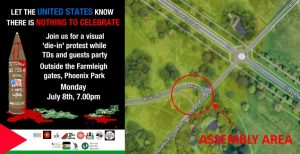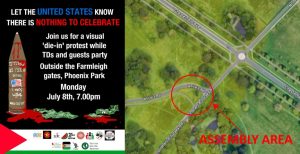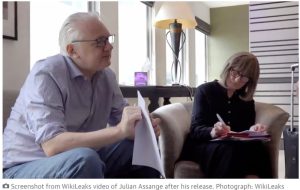In a series of public statements in recent months, President Bush and members of his Administration have redefined the war in Iraq, to an increasing degree, as a strategic battle between the United States and Iran. “Shia extremists, backed by Iran, are training Iraqis to carry out attacks on our forces and the Iraqi people,” Bush told the national convention of the American Legion in August. “The attacks on our bases and our troops by Iranian-supplied munitions have increased. . . . The Iranian regime must halt these actions. And, until it does, I will take actions necessary to protect our troops.” He then concluded, to applause, “I have authorized our military commanders in Iraq to confront Tehran’s murderous activities.”
In a series of public statements in recent months, President Bush and members of his Administration have redefined the war in Iraq, to an increasing degree, as a strategic battle between the United States and Iran. “Shia extremists, backed by Iran, are training Iraqis to carry out attacks on our forces and the Iraqi people,” Bush told the national convention of the American Legion in August. “The attacks on our bases and our troops by Iranian-supplied munitions have increased. . . . The Iranian regime must halt these actions. And, until it does, I will take actions necessary to protect our troops.” He then concluded, to applause, “I have authorized our military commanders in Iraq to confront Tehran’s murderous activities.”
The President’s position, and its corollary—that, if many of America’s problems in Iraq are the responsibility of Tehran, then the solution to them is to confront the Iranians—have taken firm hold in the Administration. This summer, the White House, pushed by the office of Vice-President Dick Cheney, requested that the Joint Chiefs of Staff redraw long-standing plans for a possible attack on Iran, according to former officials and government consultants. The focus of the plans had been a broad bombing attack, with targets including Iran’s known and suspected nuclear facilities and other military and infrastructure sites. Now the emphasis is on “surgical” strikes on Revolutionary Guard Corps facilities in Tehran and elsewhere, which, the Administration claims, have been the source of attacks on Americans in Iraq. What had been presented primarily as a counter-proliferation mission has been reconceived as counterterrorism.
The shift in targeting reflects three developments. First, the President and his senior advisers have concluded that their campaign to convince the American public that Iran poses an imminent nuclear threat has failed (unlike a similar campaign before the Iraq war), and that as a result there is not enough popular support for a major bombing campaign. The second development is that the White House has come to terms, in private, with the general consensus of the American intelligence community that Iran is at least five years away from obtaining a bomb. And, finally, there has been a growing recognition in Washington and throughout the Middle East that Iran is emerging as the geopolitical winner of the war in Iraq.
During a secure videoconference that took place early this summer, the President told Ryan Crocker, the U.S. Ambassador to Iraq, that he was thinking of hitting Iranian targets across the border and that the British “were on board.” At that point, Secretary of State Condoleezza Rice interjected that there was a need to proceed carefully, because of the ongoing diplomatic track. Bush ended by instructing Crocker to tell Iran to stop interfering in Iraq or it would face American retribution.
At a White House meeting with Cheney this summer, according to a former senior intelligence official, it was agreed that, if limited strikes on Iran were carried out, the Administration could fend off criticism by arguing that they were a defensive action to save soldiers in Iraq. If Democrats objected, the Administration could say, “Bill Clinton did the same thing; he conducted limited strikes in Afghanistan, the Sudan, and in Baghdad to protect American lives.” The former intelligence official added, “There is a desperate effort by Cheney et al. to bring military action to Iran as soon as possible. Meanwhile, the politicians are saying, ‘You can’t do it, because every Republican is going to be defeated, and we’re only one fact from going over the cliff in Iraq.’ But Cheney doesn’t give a rat’s ass about the Republican worries, and neither does the President.” Full article available from link provided. http://www.newyorker.com/reporting/2007/10/08/071008fa_fact_hersh






